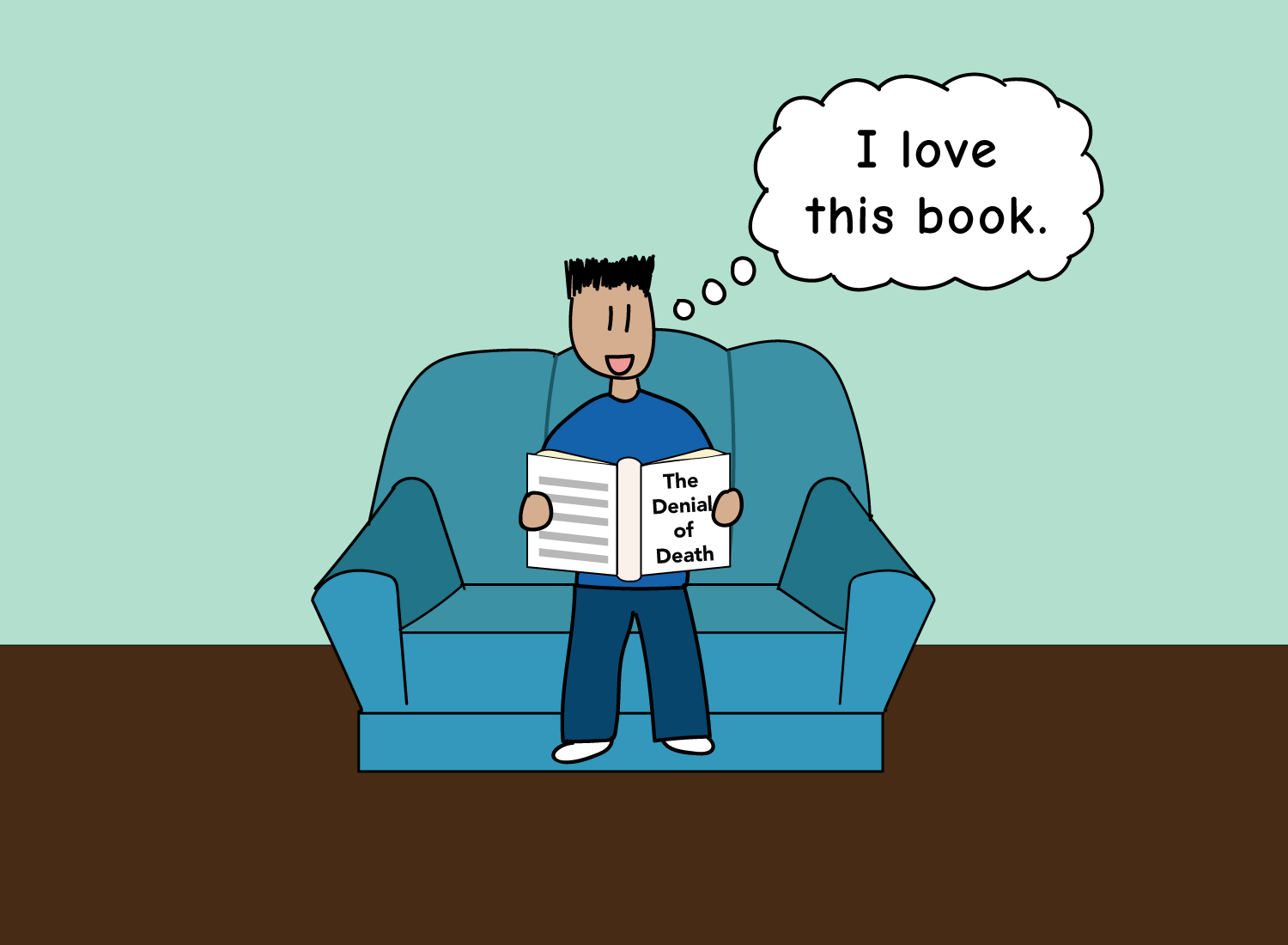The Game You Don’t Need to Play
In Ernest Becker’s brilliant work, The Denial of Death, he writes this about humanity:
We are gods with anuses.
Hidden within its hilarity is a profound point.
Becker was referring to the fundamental tension that lives at the heart of the human condition: We are equipped with godlike imaginations, but are constrained by the biology of our evolutionary lineage. No matter how amazing the byproducts of our minds are (architecture, technology, literature, etc.), we still have to defecate just like our monkey ancestors, and will slowly deteriorate until the day our bodies cease to function.
In other words, the transcendent abilities of the mind have a hard limit, and that limit is the hardware we inherited from our evolutionary ancestors.
But I’d argue that this tension goes beyond our biology. If anything, so many of our modern struggles are the result of the primitive operating system that is shipped within each fresh mind.
There are far too many psychological attributes of this primitive OS to name, but for today, I’m going to touch on just one:
The pursuit of status.
Status is one of humanity’s great poisons, but it’s so deeply engrained in our evolutionary makeup that we continue to drink from its fountain whenever we can. It’s an unsurprising fact that animals arrange themselves based on hierarchical power structures, but what’s surprising to me is how readily human beings follow that same behavior without much thought.
I’ve been reflecting on this a lot lately because of the nature of my work. Simply put, my career is about creating good and helpful things. The more time I put into it, the better I get, which in turn allows me to help more people. The investment of attention toward what I create is what matters most.
However, I’ve noticed that much of the “creator economy” has less to do with what one creates, and more to do with the status one exudes. Perhaps in the beginning, the work has to speak for itself, but after a certain point, what matters more is the identity of the person creating the work as opposed to the work itself.
And when it comes to status, the way we assign it is based on the coldness of value rather than the warmth of character.
Value must be measurable because of its use as a categorical mechanism. We desire an easy way to know who is “adding value” to society, and who is not. One common measurement we’ve used in the past is net worth, but that’s largely a private matter. However, in the last decade or two, social networks have ushered in the usage of public metrics such as subscribers and follower counts. Now, at a moment’s glance, you can get a sense of someone’s “social worth” before delving into any of their creative endeavors in the first place.
So here’s my conundrum: I’m acutely aware of the status games governing this space, but as a creator, I’m a participant as well. I understand the importance of building an audience, and know that the growth of a subscriber count is correlated with how I can make my career a sustainable one.
However, the way I keep myself grounded is the realization that I can choose the games I want to play, and the ones I want to opt out of. For example, I want to play the game where I create great stories, and have that be the magnet that draws people to my work. The game I don’t want to play, on the other hand, is one where I seek out powerful creatives to tie my name to. I’d rather direct my attention to the quality of my own labor than to invest it in the whims of someone else’s preferences. Of course, while I am grateful that someone would take the time to share or say nice things about my work, it’s important that I don’t rely on that to shape my sense of progress.
The other lesson here is to resist the allure of status myself.
Perhaps the most pernicious thing about status is that it changes the way you talk to people. If you believe you hold a higher social position than someone, then that can manifest in a number of ways. Mannerisms, tone of voice, and so on. If you see how your boss talks to her boss, then you’ll likely see how different she will seem when she talks to you once again.
One guiding principle I try to uphold is that when I’m talking to someone, I give them my full attention. It doesn’t matter who they are or what they’ve achieved, if we’ve carved out the space to chat, then I’m fully present. There is no rank-order of social positioning or anything of that nature; there are just two humans exchanging thoughts with one another, and I recognize the privilege of sharing that moment together.
The desire for status is something that we can’t entirely eradicate. It’s coded deep into our biology, making it largely inescapable. However, what we can eradicate are the smaller games that comprise it, and the ones that go against our personal values.
Be very selective about the games you need to play.
Then quickly, opt out of the rest.
_______________
_______________
For three more stories on avoiding the status trap:




